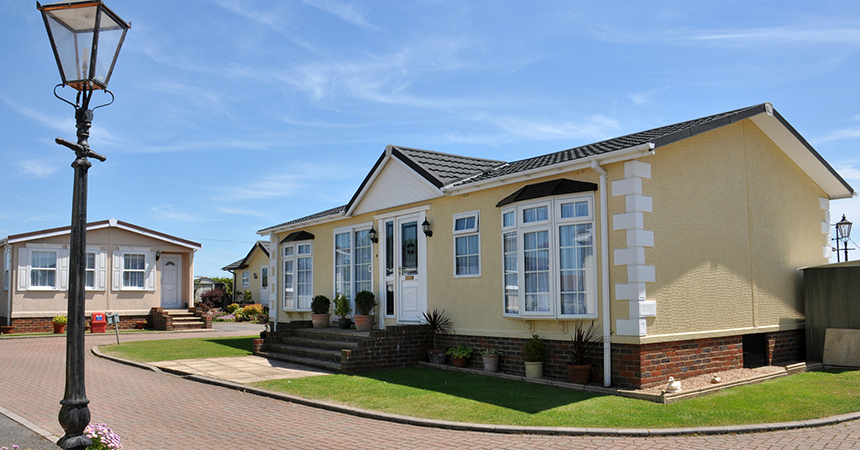
Why replace manufactured homes?
Oregon has over 170,000 manufactured homes, representing about 10 percent of total residential building stock. Nearly 110,000 of these homes were built before 1995, when federal standards for energy efficiency were minimal or non-existent. These older manufactured homes have less insulation in the ceiling, walls and floor than manufactured homes built in 1995 or after; have significant air leakage; and have inefficient windows and heating systems. As a result, residents of these homes spend about 70 percent more on energy per square foot than residents of site-built homes according to the U.S. Energy Information Administration. These higher energy costs disproportionately affect those with lower incomes.
Retrofitting older manufactured homes with efficiency measures can be ineffective and expensive. Attics and walls are usually narrow and/or inaccessible, making it difficult to increase insulation levels. Some older manufactured homes are deteriorating to the point that they cannot be made more efficient. The cost of improvements frequently exceed the home’s value and remaining useful life.
Manufactured Home Replacement Pilot
To deliver durable savings to a segment of the rural housing stock where few practical, lasting options exist, Energy Trust launched a pilot program to retire aging manufactured homes and replace them with code-exceeding energy-efficient new manufactured homes. In addition to refining the costs and benefits, the pilot aims to build partnerships to establish a replicable model that integrates energy, poverty alleviation and affordable housing investments.
Energy Trust, in partnership with Oregon Housing and Community Services, CASA of Oregon, NeighborWorks Umpqua, St. Vincent de Paul of Lane County, and regional Community Action Agencies, will identify qualified homes/parks, seek additional funding opportunities and monitor the impact of retiring and replacing older (pre-1995) manufactured homes with new, energy-efficient models. This innovative approach will benefit manufactured home occupants and communities for decades. It can also provide non-energy benefits such as healthier living conditions and greater economic security.
The new manufactured homes in this pilot will meet the standards of the Northwest Energy Efficient Manufactured Home Program (NEEM), delivering the maximum cost-effective efficiency benefit. Incentives available to the customer for qualified products are based on the NEEM 1.1 specification; additional incentives are available for homes reaching NEEM 2.0 specification.
Savings estimates for the manufactured home retirement pilot were established by Energy Trust utilizing NEEA’s Regional Building Stock Assessment, Northwest Energy Works and NEEA’s technical specifications for NEEM credentialed homes, county-level property tax enrollment and Energy Trust data.
Evaluation efforts will examine pre- and post-pilot home characteristics. The evaluation efforts will:
- Analyze pre- and post-replacement energy bills
- Collect basic home characteristics during program recruitment to continually update and refine assumptions pertaining to existing home stock
- Conduct pre- and post-replacement participant interviews to capture the qualitative benefits and/or challenges to replacing home
Evaluation activities will help Energy Trust understand energy and non-energy benefits achieved from the replacement homes. The evaluation and anonymized participant interview results will be made publically available to assist program administrators nationally.
Energy Trust is seeking affordable housing solutions that cost no more than 30 percent of a household’s income after grants, incentives and other funding. Within manufactured home parks, housing costs include both debt service on a home purchase along with lot space rental or cooperative dues. The financing package will likely include third-party loans to qualified consumers to purchase homes and/or loans to park owners to purchase homes for use as affordable housing. Energy Trust is engaged with public, nonprofit and private sector lenders to explore accessible and affordable loan options for manufactured home replacements.
Get involved
This pilot’s success depends on the collaboration and engagement of many organizations and individuals, including participants, funding partners and lenders. To date, recruitment efforts have targeted parks owned and operated by nonprofits or member-owned cooperatives. Energy Trust seeks to work in parks with stable ownership, a demonstrated record of prioritizing resident needs and critical capital improvement needs. Read our manufactured home replacement pilot fact sheet to learn more.
